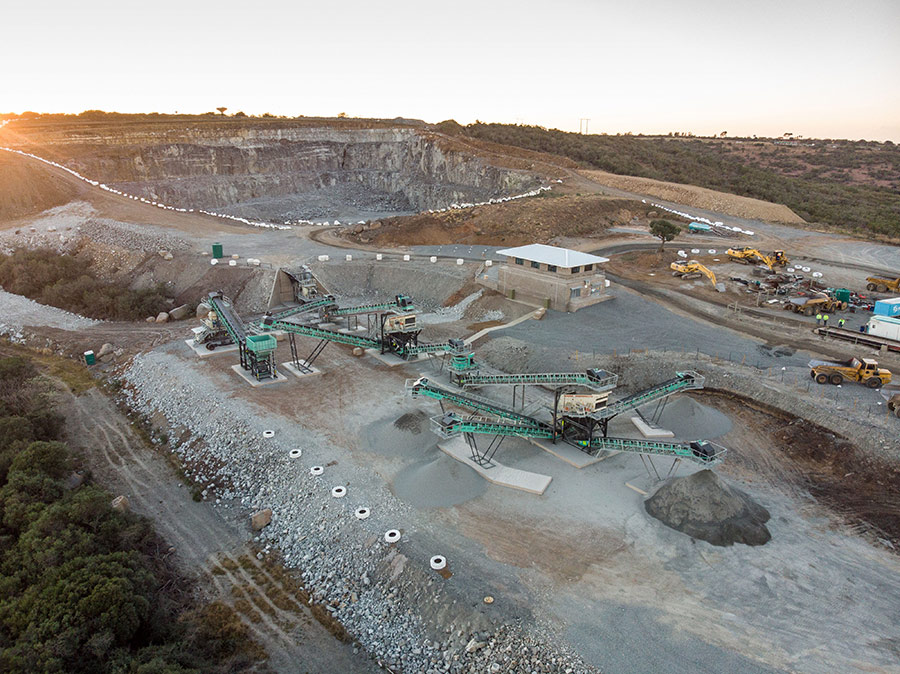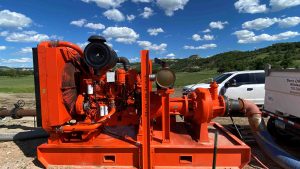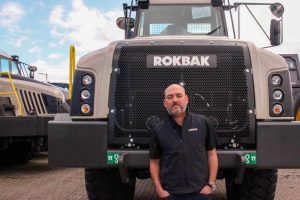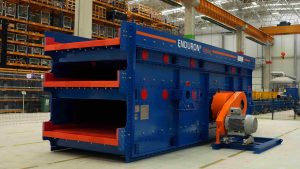Traditionally, South Africa has always constituted the bulk of Pilot Crushtec’s business. However, the company reports massive growth in the rest of southern Africa in the past year, with countries such as the Democratic Republic of Congo (DRC), Zambia and Zimbabwe showing the desire to invest in infrastructure projects.
At the moment, the amount of work coming from southern Africa is about 60% of the company’s business, with the other 40% coming from South Africa. Traditionally, it has always been the other way around.
Speaking to Quarrying Africa, Francois Marais, sales and marketing director at Pilot Crushtec, says for the first time in a long period, the modular plant market has surpassed the mobiles market in terms of demand.
“Our modular crushers, screens, conveyors and feeders are doing extremely well; we are moving them in fairly decent volumes,” he says. “To provide context, we have supplied four greenfield modular plants in southern Africa in the past six months. The majority of sales are coming from greenfield quarry and aggregate crushing projects. However, we have also sold a couple of units to existing plants where operations seek to upscale or diversify their processes.”
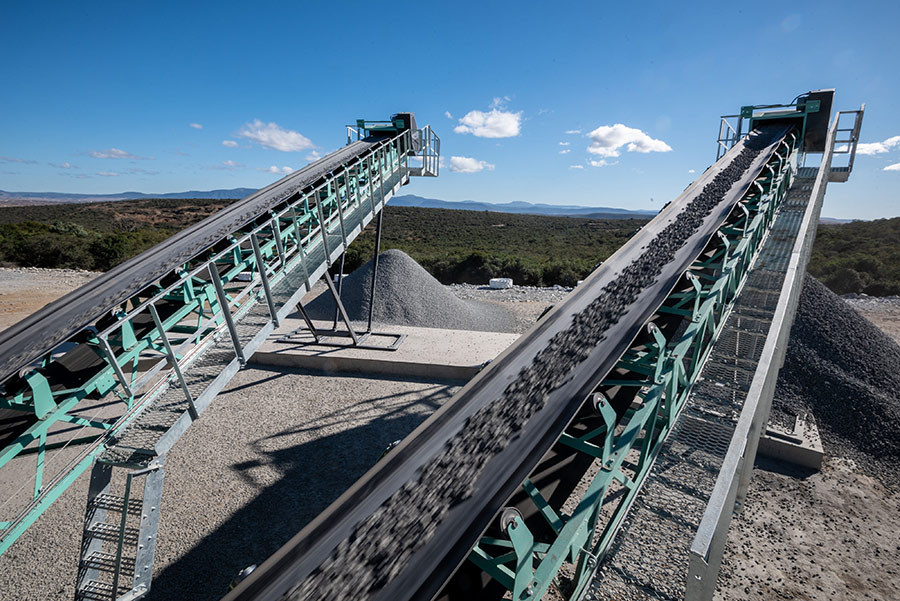
Projects
The bulk of projects taking delivery of Pilot Modular solutions are aggregates operations for mines. This is particularly the case in the DRC and Zambia, where mining companies are establishing their own quarries or borrow pits for their own road builds and structures on mines.
A case in point is a greenfield modular crushing and screening plant to process aggregates for a DRC mine – the biggest ever in Pilot Crushtec’s history. To be commissioned later this year, the 250-tonne per hour (tph) plant will include a primary crushing station, two secondary cone crushers, four triple deck screens and a tertiary cone crusher.
Meanwhile, the company recently commissioned another modular solution in Zambia. “The Zambian plant was for a mine which had experienced a critical failure on the primary section of the existing plant and needed to supplement with a secondary line, with feed material coming from the existing first line post the primary stage. We added a feeder to accept material post the existing primary crushing stage,” says Marais.
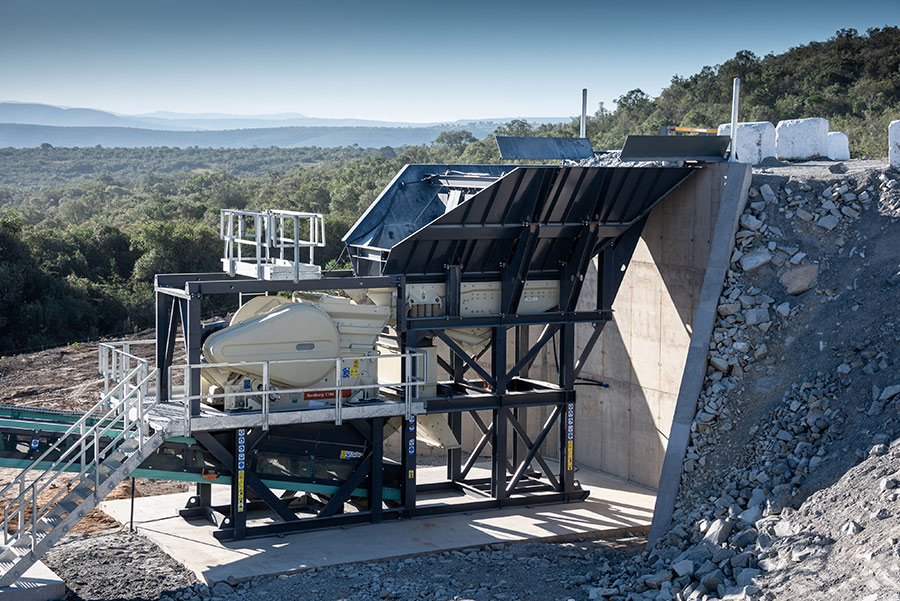
Local plants
While the rest of southern Africa is taking delivery of larger modular plants in the 200-250 tph region, South Africa is chipping in with demand for smaller modular solutions. For example, Pilot Crushtec recently supplied a 30 tph sampling plant in the country.
“It’s the kind of setup that we believe is unique to us,” says Marais. “From point of order to delivery was only a matter of six weeks. Within such a short period, the client had a fully functional plant to sample product that they are mining for export purposes. The turnaround was extremely quick and the maintenance of operations of the plant are easy. The capital outlay was also very reasonable, which made sense for the client.”
In recent months, Pilot Crushtec has also recorded remarkable success with its small, turnkey sand making plants, ranging from 30-300 tph. These incorporate locally manufactured components only, with nothing imported.
“The sand making plants are complete Pilot Crushtec designed and built solutions, all the way from feeding to material stockpiling,” he says. “We have had a lot of success with this offering, particularly driven by small scale sand producers. With high demand for manufactured sand, we believe that these plants will continue to generate a lot of interest in the market.”
The Pilot Crushtec sand-making plant generally entails a feeder that feeds into a horizontal shaft impactor (HSI). From here, material goes over a screen, with any oversize material recirculating through a vertical shaft impactor (VSI), then back to the screen to produce largely -6 mm sand or any other aggregate sizes required.
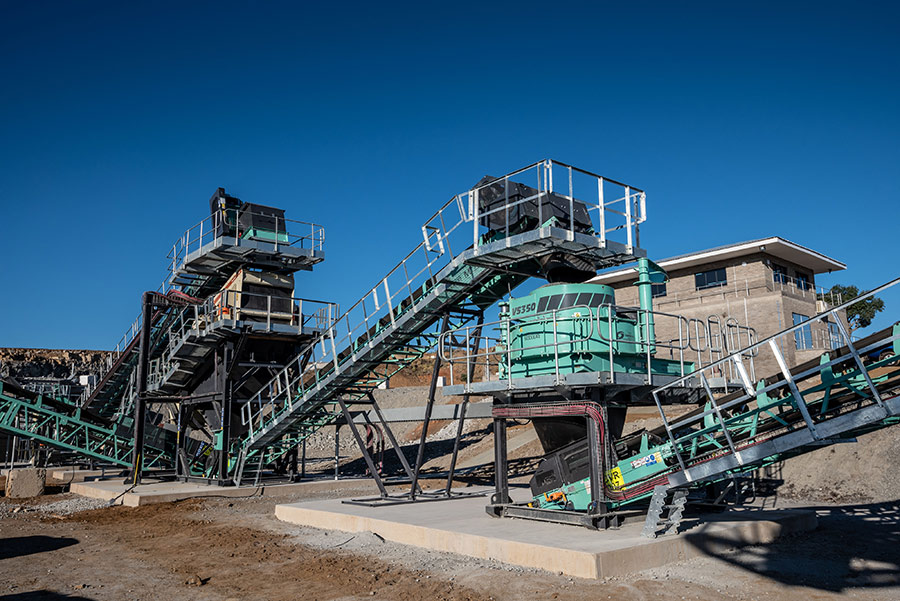
Key benefits
The modular solution offers an array of benefits to the customer. Firstly, from a design perspective, customers can select the components they need to suit their specific application. These units are then interlinked with conveyors and a solution is tailored to their specific needs and site specifications. Once the design is defined, all the modules and individual components are sent to site, lifted into place and bolted together.
Marais says modular systems are readily available modules that can quickly be on site and operational within a day or two. Traditionally, bespoke plants have lead times of at least two years and more. “Just the design and engineering of traditional bespoke plants takes 12 months, all the while costing customers a fortune. With modular solutions, the lead times are noticeably short, which is critical for most infrastructure projects,” he says.
Speaking of costs, modular plants generally have a lower capital cost compared with their bespoke, static counterparts. From an operational cost point of view, these solutions also work out cheaper than their tracked counterparts because they do not rely on diesel power. “They are far cheaper to operate and can still be quite easily relocated,” says Marais.
The modular solution is also a cost-effective option in terms of maintenance. Marais points out that with bespoke plants, getting replacement parts takes a bit longer, whereas in a standardised solution, parts are off-the-shelf in most instances. “With these solutions, our objective is the same as our customers’ – to maximise their uptime. Breakdowns and downtime related to maintenance are big enemies of production, and ultimately, profitability.”
Additionally, should requirements change at any point within the design process, customers are able to tweak the requirements, so they have exactly the right layout, equipment and capacity to get the job done at all times. “You get to choose what you need, when you need it, and can add modules as and when required,” he says.
Outlook
Looking ahead, Marais believes that the mining sector will continue to drive demand for modular plants in southern Africa for the foreseeable future, given the thriving commodities market.
“The construction sector generally remains challenged, especially in South Africa,” he says. “Consequently, even some of the traditional construction contractors that we have dealt with for decades are diversifying into contract mining or doing more construction jobs on mines. The commodities side of the industry remains the biggest contributor to southern African economies and certainly our business. That I believe will remain the status quo in the short to medium term.”
